 There's something slightly unlikely about the popular Due Processhybrid. The defiantly low-brow stance of the species 'ME Beauliea' withits comedic theatricals and jubilant confrontation contrasts markedlywith the seriousness, finesse, fastidious methods and criticalself-appraisal of the 'ME Lescalitus'. That this thought only occurredto me recently while watching Jason performing with Thomas Ankersmith,a musician perhaps even more intensely serious than Jason, clearlyhints at the success of the hybrid and reminds us that in breeding, asin marriage, comlimentarity can be as important as commonality. RonLessard's solo performance as Emil Beaulieau looses much from the lackof context in a recording (his budget priced videos might be a betterstarting point for the curious newcomer to America's Greatest LivingNoise Artist) and I've found that this is true to an extent also of theDue Process recordings. So it is important that Combines XIX XXgoes under the moniker 'Jason Lescalleet's Due Process' and that thisrefers -not- to the senior member of the team (Due Process has been thename of not Jason's, but Ron's various collaborations) but to Jason'sheavy hand in production; going way beyond mere editing and mastering.He has coaxed what I assume to have been live Due Process material intoa mutation, the clones of which are now available in LP format. It isby far the most accessible of this duo's releases. The music rangesfrom clearly identifiable Beaulieau antics polished up in theGlistening Labs to material that is essentially new Lescalleet musicbased off the recordings. Given that Ron has taken to using Jason'ssolo releases as source material in his own performance, and I thinkthere are examples of that here, the genealogy of Combines XIX XX is elegantly circular; rather like the shape of the LP itself and having much the same diameter.
There's something slightly unlikely about the popular Due Processhybrid. The defiantly low-brow stance of the species 'ME Beauliea' withits comedic theatricals and jubilant confrontation contrasts markedlywith the seriousness, finesse, fastidious methods and criticalself-appraisal of the 'ME Lescalitus'. That this thought only occurredto me recently while watching Jason performing with Thomas Ankersmith,a musician perhaps even more intensely serious than Jason, clearlyhints at the success of the hybrid and reminds us that in breeding, asin marriage, comlimentarity can be as important as commonality. RonLessard's solo performance as Emil Beaulieau looses much from the lackof context in a recording (his budget priced videos might be a betterstarting point for the curious newcomer to America's Greatest LivingNoise Artist) and I've found that this is true to an extent also of theDue Process recordings. So it is important that Combines XIX XXgoes under the moniker 'Jason Lescalleet's Due Process' and that thisrefers -not- to the senior member of the team (Due Process has been thename of not Jason's, but Ron's various collaborations) but to Jason'sheavy hand in production; going way beyond mere editing and mastering.He has coaxed what I assume to have been live Due Process material intoa mutation, the clones of which are now available in LP format. It isby far the most accessible of this duo's releases. The music rangesfrom clearly identifiable Beaulieau antics polished up in theGlistening Labs to material that is essentially new Lescalleet musicbased off the recordings. Given that Ron has taken to using Jason'ssolo releases as source material in his own performance, and I thinkthere are examples of that here, the genealogy of Combines XIX XX is elegantly circular; rather like the shape of the LP itself and having much the same diameter. There's something slightly unlikely about the popular Due Processhybrid. The defiantly low-brow stance of the species 'ME Beauliea' withits comedic theatricals and jubilant confrontation contrasts markedlywith the seriousness, finesse, fastidious methods and criticalself-appraisal of the 'ME Lescalitus'. That this thought only occurredto me recently while watching Jason performing with Thomas Ankersmith,a musician perhaps even more intensely serious than Jason, clearlyhints at the success of the hybrid and reminds us that in breeding, asin marriage, comlimentarity can be as important as commonality. RonLessard's solo performance as Emil Beaulieau looses much from the lackof context in a recording (his budget priced videos might be a betterstarting point for the curious newcomer to America's Greatest LivingNoise Artist) and I've found that this is true to an extent also of theDue Process recordings. So it is important that Combines XIX XXgoes under the moniker 'Jason Lescalleet's Due Process' and that thisrefers -not- to the senior member of the team (Due Process has been thename of not Jason's, but Ron's various collaborations) but to Jason'sheavy hand in production; going way beyond mere editing and mastering.He has coaxed what I assume to have been live Due Process material intoa mutation, the clones of which are now available in LP format. It isby far the most accessible of this duo's releases. The music rangesfrom clearly identifiable Beaulieau antics polished up in theGlistening Labs to material that is essentially new Lescalleet musicbased off the recordings. Given that Ron has taken to using Jason'ssolo releases as source material in his own performance, and I thinkthere are examples of that here, the genealogy of Combines XIX XX is elegantly circular; rather like the shape of the LP itself and having much the same diameter.
There's something slightly unlikely about the popular Due Processhybrid. The defiantly low-brow stance of the species 'ME Beauliea' withits comedic theatricals and jubilant confrontation contrasts markedlywith the seriousness, finesse, fastidious methods and criticalself-appraisal of the 'ME Lescalitus'. That this thought only occurredto me recently while watching Jason performing with Thomas Ankersmith,a musician perhaps even more intensely serious than Jason, clearlyhints at the success of the hybrid and reminds us that in breeding, asin marriage, comlimentarity can be as important as commonality. RonLessard's solo performance as Emil Beaulieau looses much from the lackof context in a recording (his budget priced videos might be a betterstarting point for the curious newcomer to America's Greatest LivingNoise Artist) and I've found that this is true to an extent also of theDue Process recordings. So it is important that Combines XIX XXgoes under the moniker 'Jason Lescalleet's Due Process' and that thisrefers -not- to the senior member of the team (Due Process has been thename of not Jason's, but Ron's various collaborations) but to Jason'sheavy hand in production; going way beyond mere editing and mastering.He has coaxed what I assume to have been live Due Process material intoa mutation, the clones of which are now available in LP format. It isby far the most accessible of this duo's releases. The music rangesfrom clearly identifiable Beaulieau antics polished up in theGlistening Labs to material that is essentially new Lescalleet musicbased off the recordings. Given that Ron has taken to using Jason'ssolo releases as source material in his own performance, and I thinkthere are examples of that here, the genealogy of Combines XIX XX is elegantly circular; rather like the shape of the LP itself and having much the same diameter. If the analogies of botanical classification and plant breeding areapplied to the evolution and development of music and musicians thenJason Lescalleet's niche market nursery Glistening Labs, a name thatreflects its experimental agenda, has released two fascinating andpromising new clones within the genus 'Musica Electronica' ('ME'). Thefirst, with the potentially confusing name Electronic Music, is a new crossing of varieties within in the species 'ME Lescalitus' while the other, Combines XIX XXis a mutation of the robust 'Beauliea-Lescalitus' hybrid known as DueProcess. The most striking, almost freakish quality of the crossing Electronic Musicis how its emphasizes the differences between it's three parentvarieties, namely tape-loops, manipulation and synthesis. This aspectis at first quite disconcerting—there's something hallucinatory aboutthe merging of sweet sounds softened by reverb and whathaveyou with theraw, brutal sound of an untreated defective tape-loop. The differencesbetween these are toyed with and made ambiguous by greater or lesserdegrees of manipulation but, whether it's intrinsic to the music or aperceptual trick, the synthetic elements seem also to adopt the natureof the tape-loops—the ametric rhythms of physical tape defects and thepower struggle between different sounds overwriting each other withoutthe use of an erase head. Electronic Music thus fully retainsthe essential character of Lescalleet's sound while adding a new layerof complexity. The track called "Litmus Tape" is enthralling and itmeasures up the best of Jason's past output. Its powerfully tenseatmosphere is like an only half perceived, entirely alien monsterlurching around; always behind you or in the periphery, unidentifiable,sinister, but curiously fascinating and, from what you can see,beautiful. If you need to ask yourself whether or not you are dreamingthen, unless you are hallucinating, you probably are. The feeling ofunreality that begs that question is what "Litmus Tape" brings forthlike noting else I've heard. The rest of the LP is consistent with thatfeeling in different ways. The various references found in the titles,pictures, layout and materials of this desirable LP are left as anexcercise for the reader.
If the analogies of botanical classification and plant breeding areapplied to the evolution and development of music and musicians thenJason Lescalleet's niche market nursery Glistening Labs, a name thatreflects its experimental agenda, has released two fascinating andpromising new clones within the genus 'Musica Electronica' ('ME'). Thefirst, with the potentially confusing name Electronic Music, is a new crossing of varieties within in the species 'ME Lescalitus' while the other, Combines XIX XXis a mutation of the robust 'Beauliea-Lescalitus' hybrid known as DueProcess. The most striking, almost freakish quality of the crossing Electronic Musicis how its emphasizes the differences between it's three parentvarieties, namely tape-loops, manipulation and synthesis. This aspectis at first quite disconcerting—there's something hallucinatory aboutthe merging of sweet sounds softened by reverb and whathaveyou with theraw, brutal sound of an untreated defective tape-loop. The differencesbetween these are toyed with and made ambiguous by greater or lesserdegrees of manipulation but, whether it's intrinsic to the music or aperceptual trick, the synthetic elements seem also to adopt the natureof the tape-loops—the ametric rhythms of physical tape defects and thepower struggle between different sounds overwriting each other withoutthe use of an erase head. Electronic Music thus fully retainsthe essential character of Lescalleet's sound while adding a new layerof complexity. The track called "Litmus Tape" is enthralling and itmeasures up the best of Jason's past output. Its powerfully tenseatmosphere is like an only half perceived, entirely alien monsterlurching around; always behind you or in the periphery, unidentifiable,sinister, but curiously fascinating and, from what you can see,beautiful. If you need to ask yourself whether or not you are dreamingthen, unless you are hallucinating, you probably are. The feeling ofunreality that begs that question is what "Litmus Tape" brings forthlike noting else I've heard. The rest of the LP is consistent with thatfeeling in different ways. The various references found in the titles,pictures, layout and materials of this desirable LP are left as anexcercise for the reader.samples:
 While my first exposure to Takemura's music was through the Child'sView material licensed in the US by Bubblecore, it wasn't until I heardhis album Scopeon Thrill Jockey that his music made a thunderous impact. Influencesfrom both Japanese traditionals and modern electronics collided with adelicate and refined attention to composition, structure and sound.Seeing Takemura live with vocalist Aki Tsuyuko on that tour drove theentire experience home for me. With the following Sign 12" and Hoshi No Koealbum, Takemura expanded on the sound, and let the music developbrilliantly, with songs that comfortably ran a full course without evergetting dull or mundane. However, his latest full-length album is adisappointment. Rather than a solid collection of 10 or so tracks, thealbum is saturated with 16 incomplete sounding compositions, stretchedto 78 minutes, nearly all exploiting the pesky Apple Macintosh voiceimitation program which (despite being a few years out of style) isirritating. The musical direction this time around leans towards moreEuropean trends, staying close to a rigid 4/4 beat and languid sounds,not entirely unlike the music coming from Morr or Bip Hop compilations.Sadly, most of the time the music sounds like it's intentionally takinga backseat to computerized vocals, which are painful by the thirdtrack, "Wandering," and downright unbearable by the seventh track, the9+ minute "Lost Treasure (4th version)." Even when Takemura drops thevoice and breaks free from the confines of 4/4 rhtyhm, the results aremediocre. Songs like "Mumble," which sound like an array of randomtones would be nice if something actually happened in its 5+ minuteother than an addition of percussion, wheras "Polymorphism," whilepleasant, could easily be new wave elevator music. Takemura's atalented composer and producer, but I'll be eagerly awaiting a 12"single remix or something to help me get past this album.
While my first exposure to Takemura's music was through the Child'sView material licensed in the US by Bubblecore, it wasn't until I heardhis album Scopeon Thrill Jockey that his music made a thunderous impact. Influencesfrom both Japanese traditionals and modern electronics collided with adelicate and refined attention to composition, structure and sound.Seeing Takemura live with vocalist Aki Tsuyuko on that tour drove theentire experience home for me. With the following Sign 12" and Hoshi No Koealbum, Takemura expanded on the sound, and let the music developbrilliantly, with songs that comfortably ran a full course without evergetting dull or mundane. However, his latest full-length album is adisappointment. Rather than a solid collection of 10 or so tracks, thealbum is saturated with 16 incomplete sounding compositions, stretchedto 78 minutes, nearly all exploiting the pesky Apple Macintosh voiceimitation program which (despite being a few years out of style) isirritating. The musical direction this time around leans towards moreEuropean trends, staying close to a rigid 4/4 beat and languid sounds,not entirely unlike the music coming from Morr or Bip Hop compilations.Sadly, most of the time the music sounds like it's intentionally takinga backseat to computerized vocals, which are painful by the thirdtrack, "Wandering," and downright unbearable by the seventh track, the9+ minute "Lost Treasure (4th version)." Even when Takemura drops thevoice and breaks free from the confines of 4/4 rhtyhm, the results aremediocre. Songs like "Mumble," which sound like an array of randomtones would be nice if something actually happened in its 5+ minuteother than an addition of percussion, wheras "Polymorphism," whilepleasant, could easily be new wave elevator music. Takemura's atalented composer and producer, but I'll be eagerly awaiting a 12"single remix or something to help me get past this album.  The first song on the new Anomonoan album is called "Sixteen Ways," butI need only two words to sum it up: Grateful Dead. The promo materialhinted that this album was inspired by the birth of Ned Oldham's sonand daughter, which is a fine and noble reason to record an album, butI would question the wisdom of including a field recording of a baby'scrying (Sam Oldham, who must be one of the newborn Oldham clan)overdubbed and softly accenting the lyrics on "Sixteen Ways," which atthis point declaim the crying of a baby as reassurance that the baby isalive. That said, this is probably my best song on "Asleep Many Yearsin the Wood." The rock songs on this album have an undeniablecountry/classic rock slant and I have a hard time listening to musicthat reminds me of The Eagles or something worse. Looking through theinserts, I noticed on the back a photo of a bottle of whiskey perchedon a window sill, with the label altered to read the band name andalbum title. This is a Photoshop sleight-of-hand which I most recentlysaw featured on the cover of Motley Crue's autobiography "The Dirt,"except there it was appropriately a bottle of Jack Daniels (here, itlooks more like what once was a bottle of Old Smuggler). Despite theshared aesthetic, I could not find any songs on the Anonomoan albumwhich recalled either early or later Motley Crue, although I might beable to make a case for "Time for Change," (circa Dr. Feelgood)sounding like "Y'Know" if I tried hard enough. The most heartwarmingparts of Anomonoan songs occur in the slower songs when Ned's voiceswoops up a few octaves and teeters on the edge of high notes he canbarely hold onto. Oldham manages to cling, however tenuous the grip,and the warble and the persistence are a beautiful thing in his voice.It is different from brother Will's, but Ned's clearly evidences theOldham vocal genome. Appropriately, one of these swoops occurs in"Bluebird of Happiness" when the lyrics croon, "and there's a contrarybreeze a-blowin'." Whether the headwind is the cause or theinterpretation of Oldham's vocal wisps, he is wise to let them take thesongs where they do, for they have the power to punctuate and decoratewhat might otherwise become bland country rock songs.
The first song on the new Anomonoan album is called "Sixteen Ways," butI need only two words to sum it up: Grateful Dead. The promo materialhinted that this album was inspired by the birth of Ned Oldham's sonand daughter, which is a fine and noble reason to record an album, butI would question the wisdom of including a field recording of a baby'scrying (Sam Oldham, who must be one of the newborn Oldham clan)overdubbed and softly accenting the lyrics on "Sixteen Ways," which atthis point declaim the crying of a baby as reassurance that the baby isalive. That said, this is probably my best song on "Asleep Many Yearsin the Wood." The rock songs on this album have an undeniablecountry/classic rock slant and I have a hard time listening to musicthat reminds me of The Eagles or something worse. Looking through theinserts, I noticed on the back a photo of a bottle of whiskey perchedon a window sill, with the label altered to read the band name andalbum title. This is a Photoshop sleight-of-hand which I most recentlysaw featured on the cover of Motley Crue's autobiography "The Dirt,"except there it was appropriately a bottle of Jack Daniels (here, itlooks more like what once was a bottle of Old Smuggler). Despite theshared aesthetic, I could not find any songs on the Anonomoan albumwhich recalled either early or later Motley Crue, although I might beable to make a case for "Time for Change," (circa Dr. Feelgood)sounding like "Y'Know" if I tried hard enough. The most heartwarmingparts of Anomonoan songs occur in the slower songs when Ned's voiceswoops up a few octaves and teeters on the edge of high notes he canbarely hold onto. Oldham manages to cling, however tenuous the grip,and the warble and the persistence are a beautiful thing in his voice.It is different from brother Will's, but Ned's clearly evidences theOldham vocal genome. Appropriately, one of these swoops occurs in"Bluebird of Happiness" when the lyrics croon, "and there's a contrarybreeze a-blowin'." Whether the headwind is the cause or theinterpretation of Oldham's vocal wisps, he is wise to let them take thesongs where they do, for they have the power to punctuate and decoratewhat might otherwise become bland country rock songs. In addition to being an acoustic guitar virtuoso, SteffenBasho-Junghans also delights in painting, particularly landscapes. Thisaspect of his creative life sheds light on his latest album, a soloacoustic trip though wide-open country scenes inspired by his ruralupbringing. Basho-Junghans (he adopted the surname of guitarist RobbieBasho in his thirties as an homage to his idol) approaches the projectmuch like a painting, and the guitar serves as his brush, craftingswirls and flourishes of sounds that fall back in on themselves andreemerge repeatedly. Each of the six tracks serves as a movement, asimple element in a broader scene. The twenty-minute six-string opener,"The River Suite," begins with a light ascension of plucked notes,lifting the music up and across the rapid cascade of tones that beginto rush beneath it. The music follows the stream, building, releasing,pausing, lingering, and all developing over a repeated body ofplucking. The repetition can be somewhat tiring, especially on thelonger tracks, like "The Takoma Bridge Incident." Though the ideas arecompelling in parts, they are exhausted by the end of the piece. Theshorter excursions on the second half of the album seem to discover andconvey their concepts much more effectively. "Rainbow Dancing" finds aclear melody, and stands as one of the more pleasant songs. On thistrack, Basho-Junghans switches to a twelve-string guitar, giving thetrack a lush, full-bodied sound that feeds the pastoral theme of thealbum. It sounds like how lying in a patch of sun soaked grass feels.Another advantage that "Rainbow Dancing" has is that it doesn't lingeron so long that you grow tired of its ideas. The lonely melody of"Autumn II" is perfectly evocative of the wailing voice of a bluegrassfolk spiritual. The weariness expressed by the piece gives off splashesof rust red and fading green, leading into the dusky "Epilogue." Thoughthe span of the album may be marked with lulls, the higher points of Rivers and Bridgesshine through. Basho-Junghans has produced a musical landscapepainting, complete with the valleys and crests, shadows andilluminations; the subtle nuances that make a work worth seeing.
In addition to being an acoustic guitar virtuoso, SteffenBasho-Junghans also delights in painting, particularly landscapes. Thisaspect of his creative life sheds light on his latest album, a soloacoustic trip though wide-open country scenes inspired by his ruralupbringing. Basho-Junghans (he adopted the surname of guitarist RobbieBasho in his thirties as an homage to his idol) approaches the projectmuch like a painting, and the guitar serves as his brush, craftingswirls and flourishes of sounds that fall back in on themselves andreemerge repeatedly. Each of the six tracks serves as a movement, asimple element in a broader scene. The twenty-minute six-string opener,"The River Suite," begins with a light ascension of plucked notes,lifting the music up and across the rapid cascade of tones that beginto rush beneath it. The music follows the stream, building, releasing,pausing, lingering, and all developing over a repeated body ofplucking. The repetition can be somewhat tiring, especially on thelonger tracks, like "The Takoma Bridge Incident." Though the ideas arecompelling in parts, they are exhausted by the end of the piece. Theshorter excursions on the second half of the album seem to discover andconvey their concepts much more effectively. "Rainbow Dancing" finds aclear melody, and stands as one of the more pleasant songs. On thistrack, Basho-Junghans switches to a twelve-string guitar, giving thetrack a lush, full-bodied sound that feeds the pastoral theme of thealbum. It sounds like how lying in a patch of sun soaked grass feels.Another advantage that "Rainbow Dancing" has is that it doesn't lingeron so long that you grow tired of its ideas. The lonely melody of"Autumn II" is perfectly evocative of the wailing voice of a bluegrassfolk spiritual. The weariness expressed by the piece gives off splashesof rust red and fading green, leading into the dusky "Epilogue." Thoughthe span of the album may be marked with lulls, the higher points of Rivers and Bridgesshine through. Basho-Junghans has produced a musical landscapepainting, complete with the valleys and crests, shadows andilluminations; the subtle nuances that make a work worth seeing. Austin, TX, is a city with a grand music tradition, but lately it's shaping up to be the new Glasgow, with more brilliant indie bands appearing out of there than most cities ever see. One of the mainstays who are enjoying a bit of a creative revival are Spoon. Formed by Britt Daniel and Jim Eno, they garnered a great deal of local attention before releasing their debut on Matador. Then they moved to Elektra, releasing only one album before they were dropped. Hitting the indie circuit again, Spoon found a home at Merge, where they've released the acclaimed Girls Can Tell and their latest work Kill the Moonlight. Where Girls showed off a meaner, leaner Spoon than in the past, Moonlight shows them losing a few more pounds just to have a bit more of a good time.
Austin, TX, is a city with a grand music tradition, but lately it's shaping up to be the new Glasgow, with more brilliant indie bands appearing out of there than most cities ever see. One of the mainstays who are enjoying a bit of a creative revival are Spoon. Formed by Britt Daniel and Jim Eno, they garnered a great deal of local attention before releasing their debut on Matador. Then they moved to Elektra, releasing only one album before they were dropped. Hitting the indie circuit again, Spoon found a home at Merge, where they've released the acclaimed Girls Can Tell and their latest work Kill the Moonlight. Where Girls showed off a meaner, leaner Spoon than in the past, Moonlight shows them losing a few more pounds just to have a bit more of a good time.
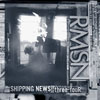 Shipping News began a series in 2001, with CD EP releases in specialpackages. Each contained songs that were written and recorded by onemember start to finish in a short span of time. The packages werehand-crafted, with a sewn seam and a bird-shaped platic cutout. Allwere super limited. All of the songs have been gathered and includedwith some new songs for this fully-fledged full-realizedfully-distributed full-length release. Given the setup, it's hardlyunsurprising that the material is far more varied than any of theiralbums. In all honesty, listening to everything thrown together in acompletely new order sounds almost completely lacking in structure.Thankfully that's only the first few times. After getting past theinitial shock of contrast that the material has to all previousShipping News music, the songs begin to reveal themselves asindividuals, prominently standing out from the others. Each approach iscompletely different than the next, with the heart of each song in adifferent spot, jumbled up like a puzzle which keeps resetting itself,buried in a sexy distorted bass of "Paper Lanterns," hidden inshimmering endless delays on "We Start to Drift," screaming through theblaring rock on "You Can't Hide the Mark Inside," or exposed by thenaked sounding, abstract and charmingly dissonant, Jandek-ish acousticand electric guitars on "Variegated." It's never explicitly clear whichperson did which song, something not entirely unlike the Beatles'eponymous white album (which too was more or less a collection of abunch of solo songs, never officially noting who did what where). Fanswill no doubt be divided, and probably pissed off that they'll have toshell out the cash for three bonus songs, but for some of us whocouldn't get our greasy mitts on some of the EPs, it's great to haveall the songs together.
Shipping News began a series in 2001, with CD EP releases in specialpackages. Each contained songs that were written and recorded by onemember start to finish in a short span of time. The packages werehand-crafted, with a sewn seam and a bird-shaped platic cutout. Allwere super limited. All of the songs have been gathered and includedwith some new songs for this fully-fledged full-realizedfully-distributed full-length release. Given the setup, it's hardlyunsurprising that the material is far more varied than any of theiralbums. In all honesty, listening to everything thrown together in acompletely new order sounds almost completely lacking in structure.Thankfully that's only the first few times. After getting past theinitial shock of contrast that the material has to all previousShipping News music, the songs begin to reveal themselves asindividuals, prominently standing out from the others. Each approach iscompletely different than the next, with the heart of each song in adifferent spot, jumbled up like a puzzle which keeps resetting itself,buried in a sexy distorted bass of "Paper Lanterns," hidden inshimmering endless delays on "We Start to Drift," screaming through theblaring rock on "You Can't Hide the Mark Inside," or exposed by thenaked sounding, abstract and charmingly dissonant, Jandek-ish acousticand electric guitars on "Variegated." It's never explicitly clear whichperson did which song, something not entirely unlike the Beatles'eponymous white album (which too was more or less a collection of abunch of solo songs, never officially noting who did what where). Fanswill no doubt be divided, and probably pissed off that they'll have toshell out the cash for three bonus songs, but for some of us whocouldn't get our greasy mitts on some of the EPs, it's great to haveall the songs together.  It is truly hard to find anything terribly wrong with The Aislers Set.With each release, the band offers a gracious gift basket of shinypost-pop which unfailingly brings up the familiar names of Spector,Wilson, et al. Aislers Set prefer to drench their vocals in a healthyamount of reverb which often gives the songs a ghostly feel amidst thepoppiness. Their albums also enjoy jumping out with the first track, sodon't get caught off guard when this third album leaps out headstrongwith the first song, "Catherine Says," a heavenly track which featuresbells and handclaps accompanying Amy Linton's cherubic voice. As thesong climaxes, the chorus rises like church patrons from their pews,getting faster and louder and more celestial; as the chorus hastens,the song's denomination takes on a strange mixture of Roman Catholicismand Southern Baptist, as bells alternate with handclaps and thenultimately join forces. "Mission Bells" features its own blend ofCalifornian minor-key organ and guitar which, through some strangeassociations in my brain, recalled scenes from the film "Three Amigos,"particularly with the antagonist, El Guapo. Incidentally, this song wasreleased as a single on a pleasant 3-song 12" which preceded thisalbum's release. Perhaps my favorite section of this album starts atthe infectious chorus of the abruptly-ending "Action AttractionReaction" (it has this lovely ascending angelic sound) and goes throughthe beginning of the next song, "Through the Swells" (I swear everytime I hear the first guitar part that I am about listen to "BigmouthStrikes Again"). There are great songs on this album, but it stillseems to pale for some reason alongside other Aislers Set albums. Itfeatures the standard Aislers assemblage of rockers, ballads,horn-filled jumpers, and crooners, but sometimes the hooks are missing.The song also seem shorter (and though I have not double-checked myarithmetic, I can say with certainty that most of them are shorter), soperhaps the songs end prematurely, without ever properly filling out orblossoming or earning their hooks. Regardless, this is still a finealbum and it would do well to grace the phonograph or CD player of anyFriday night cocktail party which shows the potential for just a littledancing once the festivities get underway and the hors d'oeuvres areall eaten.
It is truly hard to find anything terribly wrong with The Aislers Set.With each release, the band offers a gracious gift basket of shinypost-pop which unfailingly brings up the familiar names of Spector,Wilson, et al. Aislers Set prefer to drench their vocals in a healthyamount of reverb which often gives the songs a ghostly feel amidst thepoppiness. Their albums also enjoy jumping out with the first track, sodon't get caught off guard when this third album leaps out headstrongwith the first song, "Catherine Says," a heavenly track which featuresbells and handclaps accompanying Amy Linton's cherubic voice. As thesong climaxes, the chorus rises like church patrons from their pews,getting faster and louder and more celestial; as the chorus hastens,the song's denomination takes on a strange mixture of Roman Catholicismand Southern Baptist, as bells alternate with handclaps and thenultimately join forces. "Mission Bells" features its own blend ofCalifornian minor-key organ and guitar which, through some strangeassociations in my brain, recalled scenes from the film "Three Amigos,"particularly with the antagonist, El Guapo. Incidentally, this song wasreleased as a single on a pleasant 3-song 12" which preceded thisalbum's release. Perhaps my favorite section of this album starts atthe infectious chorus of the abruptly-ending "Action AttractionReaction" (it has this lovely ascending angelic sound) and goes throughthe beginning of the next song, "Through the Swells" (I swear everytime I hear the first guitar part that I am about listen to "BigmouthStrikes Again"). There are great songs on this album, but it stillseems to pale for some reason alongside other Aislers Set albums. Itfeatures the standard Aislers assemblage of rockers, ballads,horn-filled jumpers, and crooners, but sometimes the hooks are missing.The song also seem shorter (and though I have not double-checked myarithmetic, I can say with certainty that most of them are shorter), soperhaps the songs end prematurely, without ever properly filling out orblossoming or earning their hooks. Regardless, this is still a finealbum and it would do well to grace the phonograph or CD player of anyFriday night cocktail party which shows the potential for just a littledancing once the festivities get underway and the hors d'oeuvres areall eaten.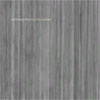 Prior to this album, my only exposure to Pulseprogramming came via asplit EP with Signaldrift and a couple of compilation appearances, allof them striking me as being pleasant but average work that wasgenerally indistinguishable from the ever expanding glut of"indie-tronica" artists. When I heard their track "Blooms Eventually"on a Wire Magazine compilation a few months back, I immediately fell inlove with it, despite the twee lyrics and the use of slightly hokeyfilter effects on the vocals. That track opens Tulsa For One Second,and while it would be hard for any record to hold to a consistentquality after such a near-perfect intro, the eight tracks that followdo a pretty good job of it. The record flits back and forth frominstrumental to vocal tracks, and it's hard to deny that the lyricsaren't exactly deep or thought-provoking ("Off To Do Showery Snapshots"includes a quote from "Row, Row, Row Your Boat"!) - but that's not agreat concern as this is an album that is more about mood and musicthan stories and messages. Tracks such as "Don't Swell Up You GlassPocket" and "All Joy And Rural Honey" evoke a similar sweet and puremelancholy as Múm and various Morr Music artists, while the moreenergetic "Largely Long-Distance Loves" throws layers of gorgeousmelody over a minimal tech-house throb. The disc closing "Bless TheDrastic Space" wraps things up nicely with groovy glitch-beats, mellowpiano lines and some almost psychedelic background swirls, followedafter a couple of minutes of silence by a strange little music boxdeconstruction. On top of all that, the packaging is really nifty,featuring a cardboard sleeve that can be folded out and built into agrey and desolate looking house. The imagery is perhaps a littlestarker than the music deserves, but it's still a nice touch to thisenjoyable project.
Prior to this album, my only exposure to Pulseprogramming came via asplit EP with Signaldrift and a couple of compilation appearances, allof them striking me as being pleasant but average work that wasgenerally indistinguishable from the ever expanding glut of"indie-tronica" artists. When I heard their track "Blooms Eventually"on a Wire Magazine compilation a few months back, I immediately fell inlove with it, despite the twee lyrics and the use of slightly hokeyfilter effects on the vocals. That track opens Tulsa For One Second,and while it would be hard for any record to hold to a consistentquality after such a near-perfect intro, the eight tracks that followdo a pretty good job of it. The record flits back and forth frominstrumental to vocal tracks, and it's hard to deny that the lyricsaren't exactly deep or thought-provoking ("Off To Do Showery Snapshots"includes a quote from "Row, Row, Row Your Boat"!) - but that's not agreat concern as this is an album that is more about mood and musicthan stories and messages. Tracks such as "Don't Swell Up You GlassPocket" and "All Joy And Rural Honey" evoke a similar sweet and puremelancholy as Múm and various Morr Music artists, while the moreenergetic "Largely Long-Distance Loves" throws layers of gorgeousmelody over a minimal tech-house throb. The disc closing "Bless TheDrastic Space" wraps things up nicely with groovy glitch-beats, mellowpiano lines and some almost psychedelic background swirls, followedafter a couple of minutes of silence by a strange little music boxdeconstruction. On top of all that, the packaging is really nifty,featuring a cardboard sleeve that can be folded out and built into agrey and desolate looking house. The imagery is perhaps a littlestarker than the music deserves, but it's still a nice touch to thisenjoyable project. 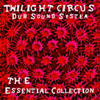 I didn't quite know what to make the first time I heard Ryan Moore'sdub project, whether it just a side project, an experiment, or a joke.Six years and 10 releases later, the jury has returned with a verdict,and it is that the Circus is something solid, reliable, and fantasticenough to keep fresh and enjoyable with every listen. For the as of yetunconverted, this disc is a great recap, as it collects 12 tracks fromthe years. All of Moore's dub is instrumental, completely void oflaptop glitchery, and only ever employing the usage of old schooldelays for effects. Popular old favorites like "Lowell and Nine" and"Horsie" are representative of the catchier early bass, organ, drumpieces, while "Fams," employs a twangy guitar in a very SpaghettiWestern-like ghost town dub, and songs like "Trinity" only ever addsubtle instruments like melodica to the mix. Moore might not be doinganything that stretches the perceptions of the universe beyond allgalactic possibilities, but what he does, he does exceptionally well.
I didn't quite know what to make the first time I heard Ryan Moore'sdub project, whether it just a side project, an experiment, or a joke.Six years and 10 releases later, the jury has returned with a verdict,and it is that the Circus is something solid, reliable, and fantasticenough to keep fresh and enjoyable with every listen. For the as of yetunconverted, this disc is a great recap, as it collects 12 tracks fromthe years. All of Moore's dub is instrumental, completely void oflaptop glitchery, and only ever employing the usage of old schooldelays for effects. Popular old favorites like "Lowell and Nine" and"Horsie" are representative of the catchier early bass, organ, drumpieces, while "Fams," employs a twangy guitar in a very SpaghettiWestern-like ghost town dub, and songs like "Trinity" only ever addsubtle instruments like melodica to the mix. Moore might not be doinganything that stretches the perceptions of the universe beyond allgalactic possibilities, but what he does, he does exceptionally well.  Lovingly culled from the rarest of flexi discs found hidden in European used vinyl shops, compilations like Beat at Cinecitta and Popshoppingbrought to the light of day scores from Italian films lost to historyand German commercial jingles from decades ago. Crippled Dick's latestcollection seems loosely bound together thematically: 21 pieces fromvarious TV and movie soundtracks from the '60s and '70s. However, these"peas" as the liner notes call them, call attention to Crippled DickHot Wax!'s mission of rescuing these tiny gems from disappearing intoobscurity.It's easy to imagine that a vast majority of these tunes came frompolice thrillers or suspense films, because they're jam packed withboth tension and an air of cool. They're often fast-paced and funky,with a streak of eeriness or mystery to them -- and lest we forget,they're also catchy as hell. The sound is dated, but that's part of theappeal. There's blaring horns, wah-wah bass, jazzy percussion andexotic flourishes like xylophones and violins tossed in for goodmeasure. Tracks like Paul Kuhn's "Gateway to a Crime" and Made inGermany's "Sprungbrett 1" are choc full of enduring vibrancy, whileothers like Günter Platzek's "Heavy Steel" embody 1970s smoothness.Sadly, the packaging lacks extensive information on each of the piecesand artists, which is unusual for CDHW! releases.
Lovingly culled from the rarest of flexi discs found hidden in European used vinyl shops, compilations like Beat at Cinecitta and Popshoppingbrought to the light of day scores from Italian films lost to historyand German commercial jingles from decades ago. Crippled Dick's latestcollection seems loosely bound together thematically: 21 pieces fromvarious TV and movie soundtracks from the '60s and '70s. However, these"peas" as the liner notes call them, call attention to Crippled DickHot Wax!'s mission of rescuing these tiny gems from disappearing intoobscurity.It's easy to imagine that a vast majority of these tunes came frompolice thrillers or suspense films, because they're jam packed withboth tension and an air of cool. They're often fast-paced and funky,with a streak of eeriness or mystery to them -- and lest we forget,they're also catchy as hell. The sound is dated, but that's part of theappeal. There's blaring horns, wah-wah bass, jazzy percussion andexotic flourishes like xylophones and violins tossed in for goodmeasure. Tracks like Paul Kuhn's "Gateway to a Crime" and Made inGermany's "Sprungbrett 1" are choc full of enduring vibrancy, whileothers like Günter Platzek's "Heavy Steel" embody 1970s smoothness.Sadly, the packaging lacks extensive information on each of the piecesand artists, which is unusual for CDHW! releases.Although this CD will be a must-have for anyone with a taste for kitschor retro, it's also genuinely well-done music that anyone could have anappreciation for. Sure, it's fluffy as a roll of toilet paper, but whocares? This compilation is the perfect soundtrack for trying to outrunthe police in an Alfa Romeo, getting into a shootout with jewelthieves, or maybe just as background music to a groovy cocktail party.
- G. Grant / S. Park - Good Company
- Paul Kuhn - Gateway to Crime
- Made in Germany - Sprungbrett 1
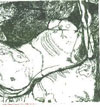 CerberusShoal have a long history of interesting musical choices, and theirlatest split-EP series is no exception. Available in limited editioncopies with varied types of original artwork on different media, theseries features the Shoal working with artists they know personallyand/or greatly respect with no set format. There are no pre-arrangedrules, only that both collaborators agree to a loose theme of somesort, or a method to the madness. In the case of this initial offeringin the series, the Düne and the Shoal each recorded original songs withlittle vinettes in between. The songs are acoustic instrument-based,and are all about love or personal relationships in various forms. Itsounds almost like a combination doomed for failure, but the endproduct will surprise fans of both bands. Herman Düne's material issimple and quick with pleasing melodies and energy, with themes thatstart light and energetic and end dark and labored. "I Want a Woman"features a brilliant spoken-word interlude about a planned date, andlamented harmony vocals about the plight of the lonely man. "If SomeoneLoves You" is musically playful, but the theme is a little more urgentand depressed with its chorus: "If someone loves you, it sure is notme." They definitely prepare you for the tone of Cerberus Shoal on"That Woman is a Murderess," where sparse violin and percussion meetwith the haunting vocal of David-Ivar Herman Düne. A strange vinettefollows, and the Shoal saunter in with "Sweetie," far from the purelyloving song that its title might suggest. Middle Easterninstrumentation and rhythms meet with a grand choral vocal performance.It's spine-tingling, and when the lyrics do eventually reveal theirquiet horror, it's no real surprise, but it still raises hairs. Theirother proper song, "Bouzouki," has the same general vocal performance,with a greater concentration on harmony, and the pace of "Hava Nagila."You can see, especially at the end, how both bands incorporatedelements of the other, making sounds that stir and slide as well asthey jab and jump. Collaborations like this are rare, and I certainlyhope these groups find time to work together proper in a studio. I canhardly wait to hear what they'd conjure up then.
CerberusShoal have a long history of interesting musical choices, and theirlatest split-EP series is no exception. Available in limited editioncopies with varied types of original artwork on different media, theseries features the Shoal working with artists they know personallyand/or greatly respect with no set format. There are no pre-arrangedrules, only that both collaborators agree to a loose theme of somesort, or a method to the madness. In the case of this initial offeringin the series, the Düne and the Shoal each recorded original songs withlittle vinettes in between. The songs are acoustic instrument-based,and are all about love or personal relationships in various forms. Itsounds almost like a combination doomed for failure, but the endproduct will surprise fans of both bands. Herman Düne's material issimple and quick with pleasing melodies and energy, with themes thatstart light and energetic and end dark and labored. "I Want a Woman"features a brilliant spoken-word interlude about a planned date, andlamented harmony vocals about the plight of the lonely man. "If SomeoneLoves You" is musically playful, but the theme is a little more urgentand depressed with its chorus: "If someone loves you, it sure is notme." They definitely prepare you for the tone of Cerberus Shoal on"That Woman is a Murderess," where sparse violin and percussion meetwith the haunting vocal of David-Ivar Herman Düne. A strange vinettefollows, and the Shoal saunter in with "Sweetie," far from the purelyloving song that its title might suggest. Middle Easterninstrumentation and rhythms meet with a grand choral vocal performance.It's spine-tingling, and when the lyrics do eventually reveal theirquiet horror, it's no real surprise, but it still raises hairs. Theirother proper song, "Bouzouki," has the same general vocal performance,with a greater concentration on harmony, and the pace of "Hava Nagila."You can see, especially at the end, how both bands incorporatedelements of the other, making sounds that stir and slide as well asthey jab and jump. Collaborations like this are rare, and I certainlyhope these groups find time to work together proper in a studio. I canhardly wait to hear what they'd conjure up then.- Herman Düne - I Want a Woman
- Herman Düne - That Woman is a Murderess
- Cerberus Shoal - Sweetie
- Cerberus Shoal - Bouzouki
 This is an old record in more ways than one. Released in 2001 inNorway, it was recently picked up and released by Ipecac this February.The album is a mix of old-timey soul, rhythm & blues and doo-woptimbres and samples pasted together very well with electronics and liveinstrumentation. Kaada is essentially Eric Kaada and four powerbooks,augmented with live drums and bass and a mixture of sampled and livevocals in the aforementioned doo-wop and soul vein. I really liked thefact that the songs aren't stereotypically "electronic"—no fast cuts ofnoise for no good reason except to be "glitchy", no weird electronicnoises for the sake of weird electronic noises. Throughout the album, Ifound myself humming along and enjoying the songs because they're funand poppy enough to do that. Between the thunderous rolling drums of"Black California" and the hypnotic second single, "No You Don't" withit's sway between sad and creepy. Speaking of "No You Don't", check outthe video, over at Kaada's websiteis worth checking out, as is the website itself, with background infoon the songs themselves and some very nice content., and the uniquejuxtaposition of sounds that feel old and sounds that can't be old, I found myself listening to this record over and over, because I just wanted the music to not stop.
This is an old record in more ways than one. Released in 2001 inNorway, it was recently picked up and released by Ipecac this February.The album is a mix of old-timey soul, rhythm & blues and doo-woptimbres and samples pasted together very well with electronics and liveinstrumentation. Kaada is essentially Eric Kaada and four powerbooks,augmented with live drums and bass and a mixture of sampled and livevocals in the aforementioned doo-wop and soul vein. I really liked thefact that the songs aren't stereotypically "electronic"—no fast cuts ofnoise for no good reason except to be "glitchy", no weird electronicnoises for the sake of weird electronic noises. Throughout the album, Ifound myself humming along and enjoying the songs because they're funand poppy enough to do that. Between the thunderous rolling drums of"Black California" and the hypnotic second single, "No You Don't" withit's sway between sad and creepy. Speaking of "No You Don't", check outthe video, over at Kaada's websiteis worth checking out, as is the website itself, with background infoon the songs themselves and some very nice content., and the uniquejuxtaposition of sounds that feel old and sounds that can't be old, I found myself listening to this record over and over, because I just wanted the music to not stop.  Many US fans of SOTL had not heard this album when their 2-CD epic, The Tired Sounds of...was put out on Kranky, so the label released this 2000 full-length onthese shores in time for the band's East Coast tour last fall.Originally released on the Belgian Sub Rosa label, Avec Laudenum was a shift in the science that is SOTL, as they tried more structure on their long, ambient compositions. After hearing Tired Soundsand listening to this release, the gap between their earlier works andthe splendor of that set is filled in quite nicely. Brian McBride andAdam Wiltzie recorded Avec Laudenum by mail, but you couldn'ttell by what you hear. It's just as warm, dense, and compelling astheir earlier works, but there's more of a desire to make everythingmove like a symphony. The songs start off with minimal melodies onkeyboard or sampler, instruments are added, and the ingredients swelland soar, expanding to a large, full sound. For a band like Yo La Tengoto record music to accompany nature films seems somewhat odd; Stars ofthe Lid would not be out of place at all to record an album of musicfor aquariums. It's the kind of music you want to relax to, to put onbefore you go to sleep to work new dreams for you, or to learn aboutthe secrets of the deep or the universe. It prepares your mind foralmost anything. The first three tracks, "The Atomium" parts onethrough three, are a hint at the multi-part extended works to come,with a very simple note progression that shifts through three tonesalong its path. Encompassing half the album, it was the duo's mostambitious effort yet, and also their most moving. It ends abruptlybefore the nine-minute "Dust Breeding," a swell-and-buzz track wherethe space between the notes is just as important as the notesthemselves. The echo on the track is particularly effective, but as itfades away to let in more crystalline keyboard sounds you'd never missit. The album closes with the beautiful "I Will Surround You," proofpositive that you don't need much in terms of instruments and notes toevoke tears. For fans it is a must, and for others I would recommendthis release as an introduction to the band. It's just enough of ataste to prepare you for the outer reaches of their brand of orchestraldrone.
Many US fans of SOTL had not heard this album when their 2-CD epic, The Tired Sounds of...was put out on Kranky, so the label released this 2000 full-length onthese shores in time for the band's East Coast tour last fall.Originally released on the Belgian Sub Rosa label, Avec Laudenum was a shift in the science that is SOTL, as they tried more structure on their long, ambient compositions. After hearing Tired Soundsand listening to this release, the gap between their earlier works andthe splendor of that set is filled in quite nicely. Brian McBride andAdam Wiltzie recorded Avec Laudenum by mail, but you couldn'ttell by what you hear. It's just as warm, dense, and compelling astheir earlier works, but there's more of a desire to make everythingmove like a symphony. The songs start off with minimal melodies onkeyboard or sampler, instruments are added, and the ingredients swelland soar, expanding to a large, full sound. For a band like Yo La Tengoto record music to accompany nature films seems somewhat odd; Stars ofthe Lid would not be out of place at all to record an album of musicfor aquariums. It's the kind of music you want to relax to, to put onbefore you go to sleep to work new dreams for you, or to learn aboutthe secrets of the deep or the universe. It prepares your mind foralmost anything. The first three tracks, "The Atomium" parts onethrough three, are a hint at the multi-part extended works to come,with a very simple note progression that shifts through three tonesalong its path. Encompassing half the album, it was the duo's mostambitious effort yet, and also their most moving. It ends abruptlybefore the nine-minute "Dust Breeding," a swell-and-buzz track wherethe space between the notes is just as important as the notesthemselves. The echo on the track is particularly effective, but as itfades away to let in more crystalline keyboard sounds you'd never missit. The album closes with the beautiful "I Will Surround You," proofpositive that you don't need much in terms of instruments and notes toevoke tears. For fans it is a must, and for others I would recommendthis release as an introduction to the band. It's just enough of ataste to prepare you for the outer reaches of their brand of orchestraldrone. 
After their disastrous EP, No. 4, I was really hoping New Wet Kojak would find a way to get back to the ultra-sexy grooves of the past and obliterate the stain that release had left on them. Early reports about this new album suggested I might be horribly disappointed. NWK had decided to record a concept album about consumer culture. I was worried, but I shouldn't have been. This is the real New Wet Kojak.
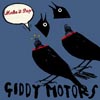 This takes me back twelve years or so to the days when I'd rarelyentertain a platter on the turntable that didn't involve tunes with alot of distorted guitar and shouting. That can still be a very goodthing, and if I was some kid weened on the post-rock continuum,whatever the hell that may be, I'd probably have my socks rocked byGiddy Motors. However, I've got so many old AmRep and Touch and Goalbums and suchlike that do this kind of thing with a tad more venomthat I can't help but have a few reservations. If I saw the band play agig I'd almost definitely be more enthusiastic than I am sat at homewith CD spinning, but that's always been the nature of the rockbeast.There's always room for one more rock band who can actually rockwithout resorting to corny old gestures. There seems to be a risingwave of post-grunge riffers storming venues around the UK. Alongsidesuch scene stalwarts as Part Chimp and Macrocosmica and relativenewcomers such as Terashima, Giddy Motors may well be the mostinventive of this boisterous bunch. My main criticism is that thesinger sounds a bit forced and silly at times, particularly on "Sassy"where his ranting cockney wideboy head-inside-out delivery begins toirk, but this is compensated for by a tight rhythm section who justkeep moving and plying all bad manner of unpredictable feints andparries. Any band who gets compared to the Birthday Party has a lot tolive up to though, and if they can muster even half the intensity it'llbe well worth hearing from a stage. "Dog Hands" is more like the JesusLizard replacing David Yow with that weird crooner from US Maple. GiddyMotors show they're capable of subtlety and light and shade subtlety on"Venus Medallist," the albums' deceptively lulling penultimate trackthat pulls off a lovely moodshift with cello, space synth whoosh andprettily plucked acoustic guitar. Steve Albini has recorded this debutalbum from the south London-based trio so you can be assured that ithits hard and precise. Unlike the drastically overrated and slightlyirritating Mclusky, Giddy Motors throw up a few quirks, sparks andspasms that hint that the best is yet to come if they can just keeppushing. When I think about the light years Boredoms have travelledfrom the Anal By AnalEP, I hope that a band like Giddy Motors can go a similar distance asit could be an exciting voyage to experience. The next step in theirjagged journey comes courtesy of the album's opening assault "Magmanic"lifted as a single. This is accompanied by a twisted bad German coversong obscurity from the Swiss group Grauzone, who I'd never heard ofbefore, and a more intense take on the album's "Bottle Opener" retitled"Tight Sauce," which might be their finest few minutes. The singlegives a pretty good idea of what the band are all about, and therefrain "It started changing," could almost be a self referentialmanifesto of sorts, but the album is more filling. They should behitting venues around the UK right about now.
This takes me back twelve years or so to the days when I'd rarelyentertain a platter on the turntable that didn't involve tunes with alot of distorted guitar and shouting. That can still be a very goodthing, and if I was some kid weened on the post-rock continuum,whatever the hell that may be, I'd probably have my socks rocked byGiddy Motors. However, I've got so many old AmRep and Touch and Goalbums and suchlike that do this kind of thing with a tad more venomthat I can't help but have a few reservations. If I saw the band play agig I'd almost definitely be more enthusiastic than I am sat at homewith CD spinning, but that's always been the nature of the rockbeast.There's always room for one more rock band who can actually rockwithout resorting to corny old gestures. There seems to be a risingwave of post-grunge riffers storming venues around the UK. Alongsidesuch scene stalwarts as Part Chimp and Macrocosmica and relativenewcomers such as Terashima, Giddy Motors may well be the mostinventive of this boisterous bunch. My main criticism is that thesinger sounds a bit forced and silly at times, particularly on "Sassy"where his ranting cockney wideboy head-inside-out delivery begins toirk, but this is compensated for by a tight rhythm section who justkeep moving and plying all bad manner of unpredictable feints andparries. Any band who gets compared to the Birthday Party has a lot tolive up to though, and if they can muster even half the intensity it'llbe well worth hearing from a stage. "Dog Hands" is more like the JesusLizard replacing David Yow with that weird crooner from US Maple. GiddyMotors show they're capable of subtlety and light and shade subtlety on"Venus Medallist," the albums' deceptively lulling penultimate trackthat pulls off a lovely moodshift with cello, space synth whoosh andprettily plucked acoustic guitar. Steve Albini has recorded this debutalbum from the south London-based trio so you can be assured that ithits hard and precise. Unlike the drastically overrated and slightlyirritating Mclusky, Giddy Motors throw up a few quirks, sparks andspasms that hint that the best is yet to come if they can just keeppushing. When I think about the light years Boredoms have travelledfrom the Anal By AnalEP, I hope that a band like Giddy Motors can go a similar distance asit could be an exciting voyage to experience. The next step in theirjagged journey comes courtesy of the album's opening assault "Magmanic"lifted as a single. This is accompanied by a twisted bad German coversong obscurity from the Swiss group Grauzone, who I'd never heard ofbefore, and a more intense take on the album's "Bottle Opener" retitled"Tight Sauce," which might be their finest few minutes. The singlegives a pretty good idea of what the band are all about, and therefrain "It started changing," could almost be a self referentialmanifesto of sorts, but the album is more filling. They should behitting venues around the UK right about now. 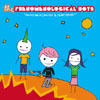 Even if I didn't know the truth, I would seriously think that thisdebut album is the result of somebody who clearly listens to a LOT ofmusic and is a big fan of numerous styles of unique recordings. Fromthe opening "Intro," the stage is set by a collage of various differentstyles cut and pasted together. With a fierce drum solo, the albumlaunches into full gear with the catchy "He's So Dumb," paying homageto laid back funk with a sexy bass riff, ample percussion and cleverlyrics. After the interlude, "Everything's a Shade of Green," is thealbum's finger-snapping 1950's doo-wop tribute, but after this point,the styles become less clearly distinguishable. Songs like the vocal(but lyric-less) "Visit to Venus," and the endearing "Will There BeYodeling in Heaven" are possibly two of the most optimistic songs I'veheard in a long while, and with what sounds like toy xylophones,Hawaiian guitar, nose holding and a parade of sound effects samples,the music appropriately backs up the lyrical optimism. "The InventedPart of the World" is oddly remeniscent of very, very early LPDcassette-only recordings, "What Do You Take Me For" could easily be anundiscovered gem, as a future outtake of one of thoseadult-contemporary songs from the 1970s piped through the loudspeakersat drug stores, and songs like "Let's Get Rid of Richard," and "TheAnti-Beard Song (Go Go Goatee)" push the humor card a bit too far formy tastes, but I'm sure can easily become mega indie radio hits. "ILike What You Like," however, is so irresistably sweet, moms all overthe world should take a hint. Perhaps if mothers sang their children tosleep at night, there might be less bitterness in the world. There ishope. This album is evidence.
Even if I didn't know the truth, I would seriously think that thisdebut album is the result of somebody who clearly listens to a LOT ofmusic and is a big fan of numerous styles of unique recordings. Fromthe opening "Intro," the stage is set by a collage of various differentstyles cut and pasted together. With a fierce drum solo, the albumlaunches into full gear with the catchy "He's So Dumb," paying homageto laid back funk with a sexy bass riff, ample percussion and cleverlyrics. After the interlude, "Everything's a Shade of Green," is thealbum's finger-snapping 1950's doo-wop tribute, but after this point,the styles become less clearly distinguishable. Songs like the vocal(but lyric-less) "Visit to Venus," and the endearing "Will There BeYodeling in Heaven" are possibly two of the most optimistic songs I'veheard in a long while, and with what sounds like toy xylophones,Hawaiian guitar, nose holding and a parade of sound effects samples,the music appropriately backs up the lyrical optimism. "The InventedPart of the World" is oddly remeniscent of very, very early LPDcassette-only recordings, "What Do You Take Me For" could easily be anundiscovered gem, as a future outtake of one of thoseadult-contemporary songs from the 1970s piped through the loudspeakersat drug stores, and songs like "Let's Get Rid of Richard," and "TheAnti-Beard Song (Go Go Goatee)" push the humor card a bit too far formy tastes, but I'm sure can easily become mega indie radio hits. "ILike What You Like," however, is so irresistably sweet, moms all overthe world should take a hint. Perhaps if mothers sang their children tosleep at night, there might be less bitterness in the world. There ishope. This album is evidence. Eric Idle was on the Daily Show last week and he said something thatstuck with me: "Everybody from Leicester is a bit weird." Of course hewas saying this in reference to his dear friend, the late GrahamChapman, but it can probably easily be applied to Volcano the Bear (andmost likely a number of people from Leicester), as their music is,well, a bit weird. In addition, Vocano the Bear's music is also (notunlike Mr. Chapman) both very charming and witty. Fellow bear, DanielPadden's first solo release actually doesn't come without the help ofother Volcano members and additional friends. As weird as theinstrumentation can get—with kazoos, ballophon, and otherunidentifiable sounds—the music on this disc is stunningly pleasant.Padden's solo debut is a very closely knit aural tapestry of dreamlikeproportions, with off-the-cuff sung vocal tracks, string pieces, andpiano tinklings. While it's still heavily-rooted in experimental andimprovisational music, these are all songs with well-craftedstructures, often with a loop (piano, clarinet, percussion) beginningthe song, and an exceptionally played instrument taking the lead.Whether it's the drone from an accordion-ish sounding instrument on"Scratch Apparatus," the pretty vocals on "Fledgling," or a twistedcalliope-like circus sounds of "Spiders on Ice," not one song on heresounds like a failed attempt at composition. With a growing number ofimprovisational musicians and groups popping up, occasionally gainingmore attention than deserved, it's an extra special treat to havesomebody around who can still write a coherent song and piece togethera well thought-out album. More solo and side projects from the Bearsare due later on this year and I'll be anxious to hear them all.
Eric Idle was on the Daily Show last week and he said something thatstuck with me: "Everybody from Leicester is a bit weird." Of course hewas saying this in reference to his dear friend, the late GrahamChapman, but it can probably easily be applied to Volcano the Bear (andmost likely a number of people from Leicester), as their music is,well, a bit weird. In addition, Vocano the Bear's music is also (notunlike Mr. Chapman) both very charming and witty. Fellow bear, DanielPadden's first solo release actually doesn't come without the help ofother Volcano members and additional friends. As weird as theinstrumentation can get—with kazoos, ballophon, and otherunidentifiable sounds—the music on this disc is stunningly pleasant.Padden's solo debut is a very closely knit aural tapestry of dreamlikeproportions, with off-the-cuff sung vocal tracks, string pieces, andpiano tinklings. While it's still heavily-rooted in experimental andimprovisational music, these are all songs with well-craftedstructures, often with a loop (piano, clarinet, percussion) beginningthe song, and an exceptionally played instrument taking the lead.Whether it's the drone from an accordion-ish sounding instrument on"Scratch Apparatus," the pretty vocals on "Fledgling," or a twistedcalliope-like circus sounds of "Spiders on Ice," not one song on heresounds like a failed attempt at composition. With a growing number ofimprovisational musicians and groups popping up, occasionally gainingmore attention than deserved, it's an extra special treat to havesomebody around who can still write a coherent song and piece togethera well thought-out album. More solo and side projects from the Bearsare due later on this year and I'll be anxious to hear them all. 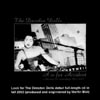 I first met Amanda Palmer eight years ago. After seeing her firstperform at piano in her parents house with a small crowd gatheredaround, I knew she could be a star. After seeing the Dolls perform justover a week ago, I was completely wrong. Amanda Palmer is beyondpotential star, she is the next rock and roll savior. It didn't comewithout the addition of a fantastic drummer she found in BrianViglione. After years of seeing Palmer play solo, the change iscompletely evident as the crowds are now staggering (a sold outcapacity of Middle East downstairs is 575 people and their show waspretty damned close), many of which are singing along and rolling inthe joy. A full-length record is now in its final stages beforerelease, but until then, this CD is a perfect way to catch up on thebest of the last couple years. It consists of 11 popular crowdfavorites, recorded in concert venues both large and small, rehearsalspaces, and radio station studios. Palmer doesn't simply play thepiano, she makes it her bitch, and Viglione's drum work is tactfullyrefined and carefully reserved, playing off Palmer's tight-stopping andsassy cues which change their mind like the most stereotypical womanwould demand you to allow. The songs are always entertaining, farbeyond expectation in every way, both in their off-kilter rhythmicmotives and peculiar subject matter, owing as much to theatricalcabaret-type tunes as to the Pink Dots. Sure, she sings about love, butI'm sure these songs are all purely fiction from the mind of a dreamerwho sleeps with a notepad by the bed. "Bank of Boston Beauty Queen" isan autobiographical reflection on growing up a goth teen, "ChristopherLydon" is the story of Palmer's obsession with a former local NPRcelebrity, and the deep, direct power of "Will," with strings added issensationally appetite-wetting for the full-length record (especiallywith the lyric, "I don't mind if you read while I'm coming!"). As thisdisc collects recordings from a number of sources, the sound is,expectedly inconsistent, but fear not, this will be a much sought afteritem in the years to come.
I first met Amanda Palmer eight years ago. After seeing her firstperform at piano in her parents house with a small crowd gatheredaround, I knew she could be a star. After seeing the Dolls perform justover a week ago, I was completely wrong. Amanda Palmer is beyondpotential star, she is the next rock and roll savior. It didn't comewithout the addition of a fantastic drummer she found in BrianViglione. After years of seeing Palmer play solo, the change iscompletely evident as the crowds are now staggering (a sold outcapacity of Middle East downstairs is 575 people and their show waspretty damned close), many of which are singing along and rolling inthe joy. A full-length record is now in its final stages beforerelease, but until then, this CD is a perfect way to catch up on thebest of the last couple years. It consists of 11 popular crowdfavorites, recorded in concert venues both large and small, rehearsalspaces, and radio station studios. Palmer doesn't simply play thepiano, she makes it her bitch, and Viglione's drum work is tactfullyrefined and carefully reserved, playing off Palmer's tight-stopping andsassy cues which change their mind like the most stereotypical womanwould demand you to allow. The songs are always entertaining, farbeyond expectation in every way, both in their off-kilter rhythmicmotives and peculiar subject matter, owing as much to theatricalcabaret-type tunes as to the Pink Dots. Sure, she sings about love, butI'm sure these songs are all purely fiction from the mind of a dreamerwho sleeps with a notepad by the bed. "Bank of Boston Beauty Queen" isan autobiographical reflection on growing up a goth teen, "ChristopherLydon" is the story of Palmer's obsession with a former local NPRcelebrity, and the deep, direct power of "Will," with strings added issensationally appetite-wetting for the full-length record (especiallywith the lyric, "I don't mind if you read while I'm coming!"). As thisdisc collects recordings from a number of sources, the sound is,expectedly inconsistent, but fear not, this will be a much sought afteritem in the years to come.


